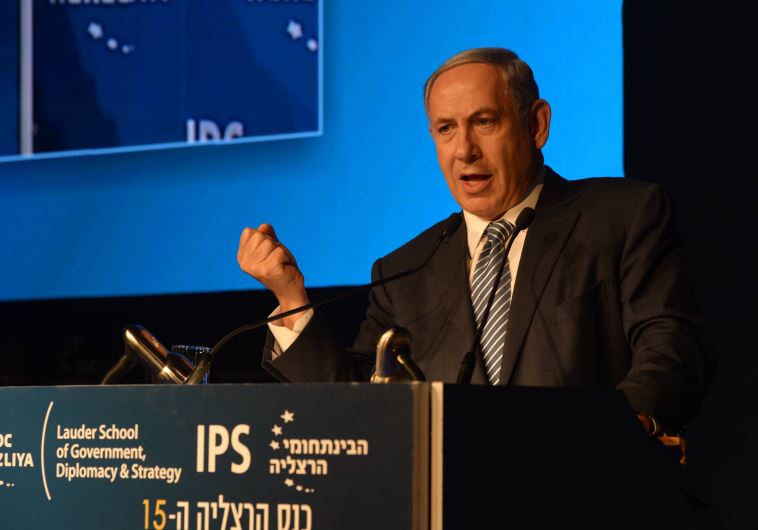Netanyahu touts 'building alliances' in light of tensions with Obama
Netanyahu, speaking to a strategic conference near Tel Aviv, blamed the Palestinians for the 14-month impasse in negotiations.
 Prime Minister Benjamin Netanyahu delivers remarks at the Herzliya Conference(photo credit: AMOS BEN GERSHOM, GPO)
Prime Minister Benjamin Netanyahu delivers remarks at the Herzliya Conference(photo credit: AMOS BEN GERSHOM, GPO)